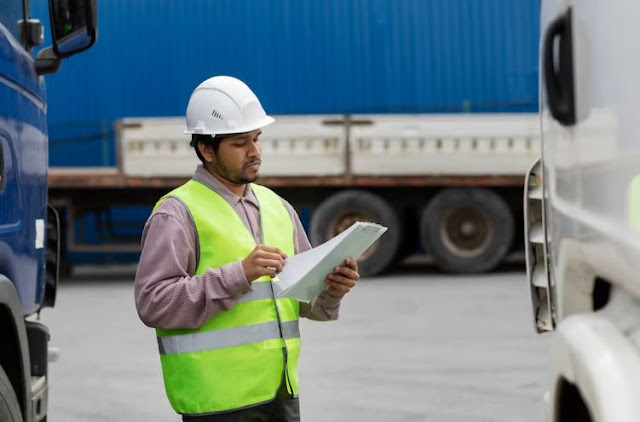
In the bustling world of international commerce, the freight forwarder stands as a pivotal figure, helping to smoothly bridge the divide between supply and demand across oceans, continents, and international borders.
But what is a freight forwarder? They are akin to an orchestra conductor, coordinating the movement of goods from one point to the next, ensuring timely delivery, and addressing myriad complexities along the way.
Understanding What A Freight Forwarder Does
A freight forwarder, often referred to as a freight forwarder or FFW, is instrumental in planning and implementing the shipment process for both businesses and individuals.
This entity is responsible for ensuring the safe, efficient transit of goods from their origin point to their intended destination. They are the unheralded navigators of the commercial seas, skies, and roads.
This vital role can be specialized based on the primary mode of transportation used. Hence, we have surface freight forwarders overseeing land-based transportation (like truck, rail, and river transport), ocean freight forwarders mastering sea-based logistics, and air freight forwarders focusing on air transit.
Navigating The Paperwork Labyrinth
One of the critical competencies of a freight forwarder is in the management of the often intricate and time-consuming documentation necessary for international transportation.
This documentation maze includes the issuance of the Bill of Lading, an integral document in the shipping industry. By expertly handling these paperwork tasks, freight forwarders ease the burden on companies, allowing them to focus on their core business operations.
The Art Of Negotiation And Coordination
Freight forwarders are skilled negotiators, working with transportation companies to secure the most competitive rates for their clients. These savings can be significant, particularly in the world of exporting and importing where margins can be slim.
Beyond negotiating rates, freight forwarders coordinate the entire transportation journey, which often involves a blend of sea, land, and air travel. They also ensure that the cargo is adequately insured, safeguarding their clients' interests in case of any unforeseen damages or loss during the transit.
Mastering The Full Container Load (FCL)
Another defining feature of a freight forwarder is their expertise in handling Full Container Load (FCL) shipments. They are proficient in consolidating several small shipments from different shippers into a single consignment, thereby optimizing the space and cost involved in shipping.
The Freight Forwarder In Retail
In the retail industry, freight forwarders are indispensable. Their adeptness at handling large volumes of goods and maintaining operational consistency helps ensure that shelves are always stocked and ready for consumers.
Role In Custom Clearances
Another critical responsibility that freight forwarders shoulder is ensuring the clearance of goods through customs.
Navigating the labyrinth of customs regulations, laws, and tariffs in various countries is not a task for the faint-hearted, and freight forwarders have the knowledge and experience to get this job done efficiently.
They take the headache out of the importing and exporting process by handling all customs-related procedures, thereby avoiding potential delays and fines.
Innovation And Technology In Freight Forwarding
In this digital age, freight forwarders are becoming increasingly tech-savvy. They employ advanced technology and software to track shipments in real-time, providing clients with timely updates and ensuring transparency in the process.
Utilizing technologies such as AI, blockchain, and IoT, freight forwarders are enhancing operational efficiency, improving delivery times, and transforming the customer experience.
Sustainability In Freight Forwarding
Sustainability has become a major consideration in every industry, and freight forwarding is no exception.
Freight forwarders play a crucial role in promoting green logistics by optimizing routes to reduce fuel consumption, consolidating shipments to maximize container usage, and choosing eco-friendly modes of transport whenever possible.
This commitment to sustainability not only benefits the environment but also results in cost savings for their clients.
Offering Expert Advice And Surveillance
A freight forwarder's role doesn't end with arranging transportation and managing documentation. They also provide expert advice and monitor all stages of the transportation process, offering their clients peace of mind and enabling them to manage their supply chains more efficiently.
The Future Of Freight Forwarding
Looking to the future, the role of freight forwarders is set to become even more critical. With the ongoing growth of e-commerce and the increasing complexity of global supply chains, the demand for expert freight forwarding services is likely to soar.
Forwarders who adapt to emerging technologies, embrace sustainable practices, and continue to provide unrivaled customer service will lead the industry. Freight forwarding is essential to logistics and keeping the world moving.
Conclusion
A freight forwarder is a key player in today's globalized world, ensuring the seamless movement of goods across borders. They are a significant partner in the journey of importing and exporting, bridging the gap between suppliers and buyers, and making global commerce work. It is hard to imagine a world of international trade without their vital contributions shipping freights and keeping supply chains going.


